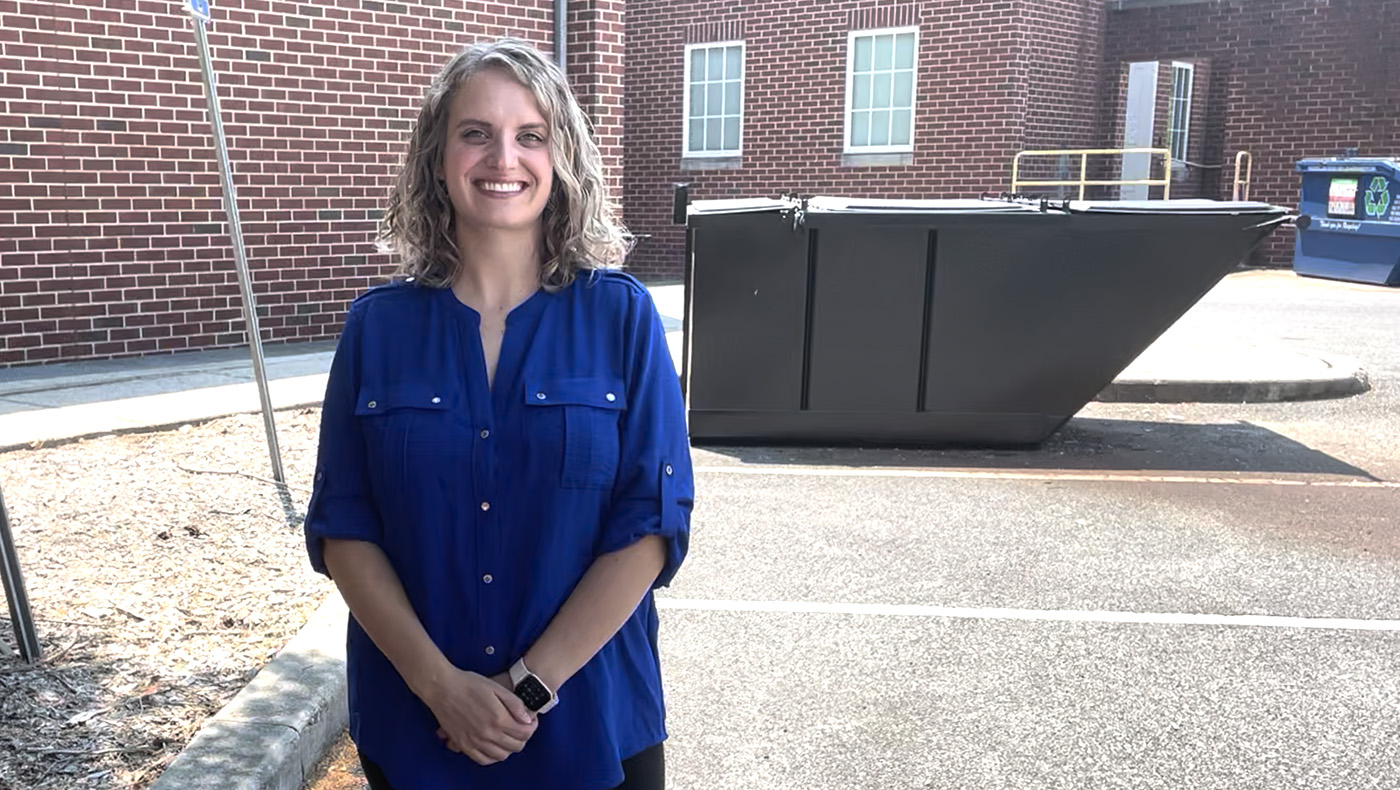It’s an image that still stands out in Kathryn Bender’s mind: A shopper walking out of a store with four bags of groceries, dropping one of them, and just leaving it there in the parking lot.
You probably don’t know anyone who would do this — or at least who realizes they’re doing it. The jarring scene she described was an illustration in the documentary “Just Eat It: A Food Waste Story,” and Bender, an assistant professor of economics in the University of Delaware’s Alfred Lerner College of Business and Economics, said it’s one of the most impactful messages she’s seen.
“That’s essentially what we do with wasted food,” she said.
In new research published in April in the Journal of the Agricultural and Applied Economics Association, Bender and several research collaborators found that household food waste in the United States shot up an alarming 280 percent in one year. They surveyed adults around the country from early 2021 to early 2022, so this represents a slice of time from the height of the COVID-19 pandemic to after restrictions had eased. The researchers believe this was part of the reason for the spike.
“Nobody sets out to produce food waste, but it’s an unintended consequence we always have,” Bender said, adding, “There’s just so many little things we can do to help, that if everybody were doing it would have a pretty big impact.”
The Obama administration laid out an ambitious goal in 2015: Chopping the country’s food waste in half by the year 2030. Part of the rationale for the study is that there’s a lack of data on how we’re doing, and households are one of the main sources of food waste.
This research comes in about halfway to the target date, and the authors note with a bit of understatement that their findings “bode poorly for goal attainment.”
In other words, it’s not going well.
All this waste has a huge environmental impact, Bender said. In landfills, rotting food emits the potent greenhouse gas methane (and makes the trash smell bad at the same time). It also wastes the resources that went into producing the food. “There’s nothing good about food waste,” she said.
To qualify, study participants needed to prepare at least half the food for the household. They kept track of food they threw away, including disposing of it by feeding it to animals or adding it to compost, but were not supposed to count inedible waste like seeds or bones. And don’t blame Thanksgiving or Christmas excess for the poor numbers, as periods around major holidays were left out.
The researchers plan to continue the surveys in coming years to build the data, and Bender said preliminary results show waste leveling off — but not necessarily going down again. In other words, we can’t really pat ourselves on the back just because we didn’t triple our waste again.
So what caused those hair raising levels of food squandering after the pandemic? The researchers have a few theories. For one thing, more food went to waste when people ate out more, and people did that a lot more over the course of the study year.
“Maybe they were planning on using (the food) for dinner on Thursday night,” Bender said, “but then on Thursday night they ended up going out for happy hour with their friends.”
During COVID times, people were more likely to cook at home and perhaps better manage their food, the study noted.
Counterintuitively, the study also found that food waste increased despite rising food prices. Households may have tried to save money by buying food in bulk — of which some went bad before it could be used.
That can be even worse for the environment than just run-of-the-mill, small batch waste. Bender pointed out that when people put more food in storage like freezers, they’re using more energy.
The blame is not all on consumers, Bender noted. Practices like how long the food is stored as it’s being processed and shipped contribute to how it ages, and people who buy the food are just the last stop in the chain, so they get the blame. Also, some people live in food deserts, or places where it’s hard to find a grocery store, which makes it harder to manage household food.
Still, taking care with how we use food can make a big difference, Bender said.
Other solutions are more on the production side. Bender said one big problem is labeling. There’s no standard for expiration date labels on food, and companies have an incentive to make the dates earlier than necessary – after all, their reputation is at stake. That can lead to confused consumers throwing out food that is still good.
Education is important. Many people don’t know, for example, that they can use many foods after the date printed on the package. For example, pasteurized milk might be of a lower quality and taste, Bender said, but “you can still use it to make pancakes or bake with it.”
Addressing all these problems will require investment. She hopes there will be some money for a national food waste reduction campaign in the next farm bill.
“It’s not going to happen without financial commitment to get out in communities and run educational campaigns.”




